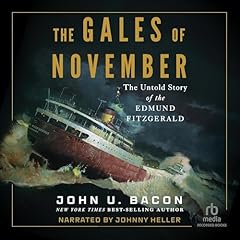
Lonely Vigil
Coastwatchers of the Solomons
No se pudo agregar al carrito
Add to Cart failed.
Error al Agregar a Lista de Deseos.
Error al eliminar de la lista de deseos.
Error al añadir a tu biblioteca
Error al seguir el podcast
Error al dejar de seguir el podcast
 Exclusivo para miembros Prime: ¿Nuevo en Audible? Obtén 2 audiolibros gratis con tu prueba.
Exclusivo para miembros Prime: ¿Nuevo en Audible? Obtén 2 audiolibros gratis con tu prueba.Compra ahora por $20.96
-
Narrado por:
-
Norman Dietz
-
De:
-
Walter Lord
From the best-selling author of Day of Infamy: In the bloodiest island combat of WWII, one group of men kept watch from behind Japanese lines.
The Solomon Islands was where the Allied war machine finally broke the Japanese empire. As pilots, marines, and sailors fought for supremacy in Guadalcanal, Bougainville, and the Slot, a lonely group of radio operators occupied the Solomon Islands' highest points. Sometimes encamped in comfort, sometimes exposed to the elements, these coastwatchers kept lookout for squadrons of Japanese bombers headed for Allied positions, holding their own positions even when enemy troops swarmed all around.
They were Australian-born but Solomon-raised, and adept at survival in the unforgiving jungle environment. Through daring and insight, they stayed one step ahead of the Japanese, often sacrificing themselves to give advance warning of an attack.
In Lonely Vigil, Walter Lord, the number one New York Times best-selling author of A Night to Remember and The Miracle of Dunkirk, tells of the survivors of the campaign and what they risked to win the war in the Pacific.
©1977 Walter Lord (P)2018 TantorLos oyentes también disfrutaron:




















Las personas que vieron esto también vieron:


















One of the best books about a little known group of brave men.
Se ha producido un error. Vuelve a intentarlo dentro de unos minutos.
It Really Happened
Se ha producido un error. Vuelve a intentarlo dentro de unos minutos.
As Admiral Nimitz famously concluded: the Coastwatchers saved The Solomons , and the Solomons saved the Pacific.
I knew the places and some of the chatacters
Se ha producido un error. Vuelve a intentarlo dentro de unos minutos.
Fascinating story
Se ha producido un error. Vuelve a intentarlo dentro de unos minutos.
The real saving grace is the content itself. Very interesting story.
Fantastic story, difficult narration.
Se ha producido un error. Vuelve a intentarlo dentro de unos minutos.


